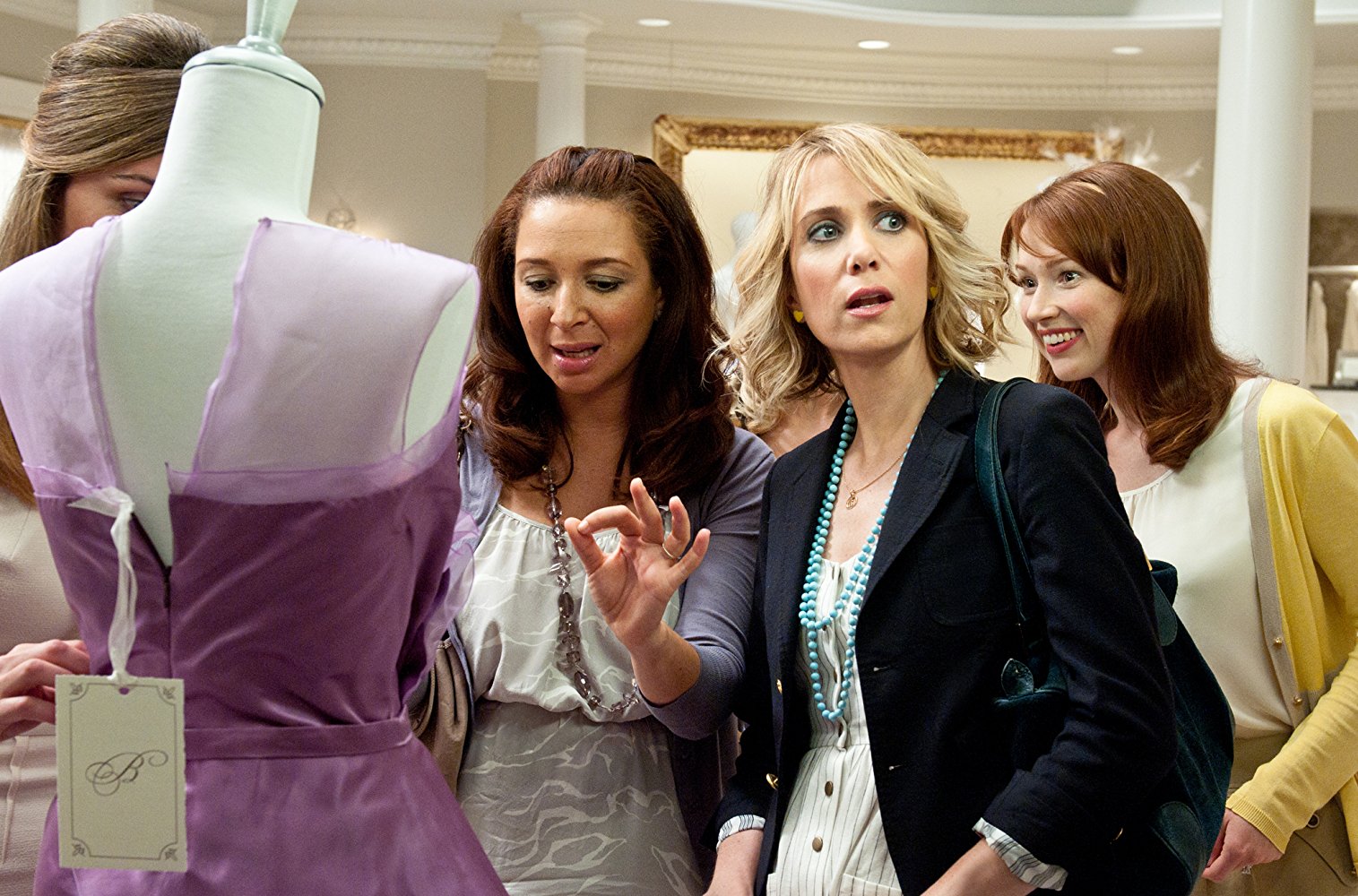I’m sure you’re all familiar with the female-led “comedy” Bridesmaids (2011). The hype surrounding the film preceded my initial viewing of it—critics and the casual moviegoer alike hailed it as a major success and a win for females in comedy.
So, when I finally got around to watching it, I was shocked to find I was watching the depressing downward spiral of a woman ostracized by her friends, failing at her dreams, and rejecting the help and affection of those who truly care about her—a light-hearted drama would be too kind of a categorization. Upon revisiting it, I was struck once again by how the film does not quite live up to its reputation.
The film has some funny scenes, sure, but after watching over two hours of this honest look at what it is like to get pushed to the periphery of your friends’ lives as their goals and day-to-day realities inevitably change was not offset by a couple toilet humor scenes, some drunken lesbianism, jealousy-fueled over-the-top competition for attention, and a drugged out woman causing mayhem on an airplane. All of these were memorable scenes but calling this film a comedy just because of a few quick laughs is an oversimplification.
Looking at the other films Kristen Wiig has starred in, it does not make sense to me why forcing comedic branding onto this film was deemed necessary. She has been in several of these pseudo-funny, cynical-but-ultimately-uplifting analyses of an imperfect life—Girl Most Likely (2012), The Skeleton Twins (2014), and Welcome To Me (2014), to name a few. A clear avoidance of these complexities is evident in the marketing’s narrative and in the public’s reception of the film. Maybe it an attempt to achieve blockbuster-status, maybe to capitalize on the star power of the cast’s traditionally funny women, this movie is shoved into a category it does not quite belong in.
Bridesmaids is a good movie. It has humorous elements. It is not hilarious. Slapping the words “comedy” and “romance” onto the IMDb page does not make it one. Overlooking the fact that there are some genuinely sad and complicated moments in this film does not quite capture the plot of the film. We are presented with a flawed, and occasionally selfish character. We watch her hit her lowest moments and come out the other side irrevocably changed. Her relationships don’t go back to normal with a simple explanation and the old “it was all a great, big, misunderstanding” trope. Even in the “happy” ending, you can see that her immature actions have long-standing consequences that they all must live with and work toward repairing.
At the end of the day, it is probably not that big of a deal how a film is branded. It may, however, indicate the movie industry’s proclivity for slapping a nice bow that ties everything all together onto their products, often dumbing down more realistic portrayals of humanity. Bridesmaids is not the hilarious comedy it’s often mistaken for, but it is a decent movie that gives us a look at a “funny” character whose story cannot be pinned down by an arbitrary label.







